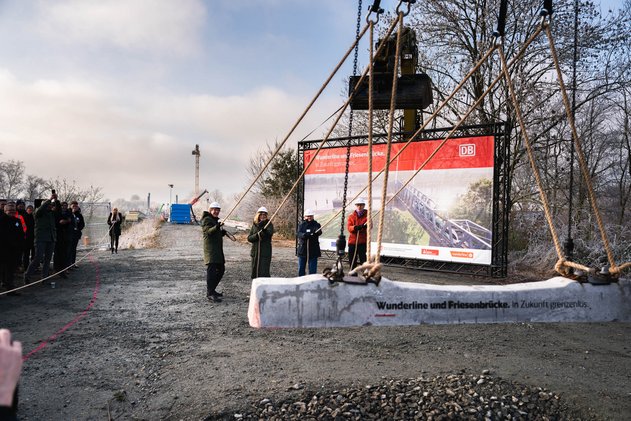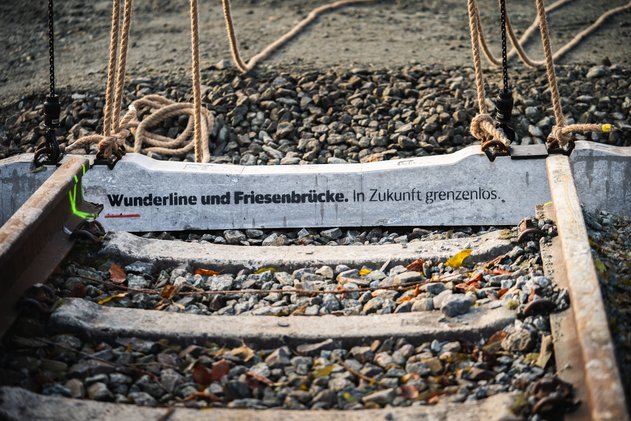The starting signal was given by Ute Plambeck, representative of Deutsche Bahn AG for the federal states of Hamburg, Schleswig-Holstein, Bremen and Lower Saxony, Hans Schrikkema provincial secretary of Groningen province and Frank Doods, state secretary of the Lower Saxony Ministry for Economy, Transport, Construction and Digitalisation and chairman of the Wunderline Steering Group.
Groningen - Bremen within two and a half hours
The 173-kilometre rail link between Bremen and Groningen connects northern Germany with the northern Netherlands. Thanks to track modifications, the train journey will be faster and more comfortable for passengers. With the 2025 timetable, the Wunderline will reduce the travel time for passengers between Groningen and Bremen to less than two and a half hours. Ute Plambeck: "With the extension of the Wunderline, we are not only setting an example for climate-friendly rail transport across the border, but also creating a faster, more comfortable and environmentally friendly connection between Bremen via Leer to Groningen. At the same time, the extension of the line will strengthen the region's economy and tourism and enable more rail mobility in rural areas."
Impulse for the region
Moreover, the Wunderline is an important link of the European rail network from Amsterdam to Hamburg and Scandinavia. Work is also underway on station accessibility, logical connection to other means of transport and quality of stay at stations along the railway line. Hans Schrikkema, provincial secretary of Groningen province: "Wunderline and Friesenbrücke are the long-awaited cross-border connections between Germany and the Netherlands, an important boost for the entire region, the province of Groningen and all municipalities along this railway line. I am glad that both countries will now also get a better connection to the European railway network towards Amsterdam and Copenhagen. This means that in future, people in the region will not only be able to travel faster and more comfortably between Bremen and Groningen, but also reach more distant destinations more easily by train."

